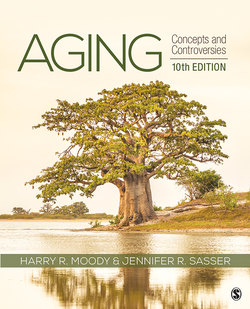Читать книгу Aging - Harry R. Moody - Страница 48
На сайте Литреса книга снята с продажи.
Religious Participation and Well-Being
ОглавлениеResearchers have been interested in the benefits that religion and spirituality can have for older people. Cross-sectional studies have found a positive correlation between measures of well-being and religious beliefs among the old (MacKinlay & McFadden, 2004). Those with high levels of religious commitment also have higher levels of life satisfaction than those for whom religious commitment is not as important. This relationship holds true even when controlling for age, marital status, education, and perceived health status.
But the significance of these correlations may be less than meets the eye. How do we define or measure what “religiousness” actually means in people’s lives? Another difficulty is the partial confounding of religious involvement with measures of functional health status. Does religious engagement actually promote physical health (George et al., 2013)?
Participation in religious activities and spiritual practices has been connected to well-being in later life.
Alison Wright/Getty Images
Empirical studies have shown that religion can serve as a means of helping older people cope with stress. For example, the Duke Longitudinal Studies of Aging found that older persons who used religion as a coping mechanism were more likely to exhibit higher levels of adjustment than others, even during intense life stress, such as bereavement and chronic illness. Nearly half of the respondents in the Duke studies reported that religious attitudes or behavior helped them cope with stressful life events. Among those who relied on religion, coping strategies reflect different patterns of disengagement or activity. Private religious beliefs and behaviors, such as trust, faith in God, and prayer, were cited as coping strategies more frequently than church-related and religious social activities.
Investigators theorize that religion helps older adults cope in a variety of ways:
By reducing the impact of stress in late-life illness
By providing a sense of order and meaning in life
By offering social networks tied to religious groups
By strengthening inner psychological resources, such as self-esteem
